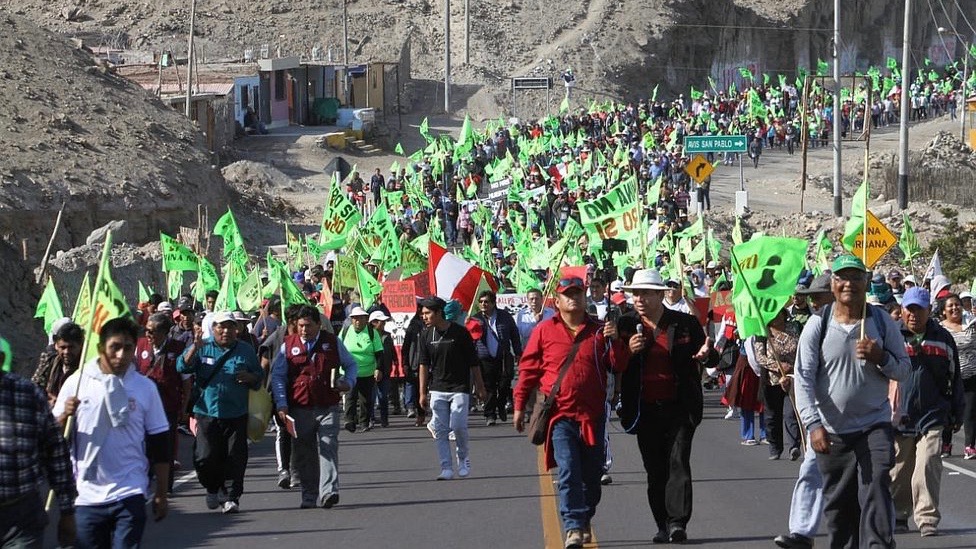On August 12, the Peruvian Mining Council sent an official notice to the Mexican mining company, Southern Copper Corporation (SCC), temporarily suspending the license granted for the construction of Tia Maria copper mining project. However, the inhabitants of the Tambo Valley, in the Arequipa region, where the mine is located, rejected the government’s decision and demanded the definitive termination of the project. They announced that they will continue the indefinite strike that they have been carrying out for the last month.
Since July 15, thousands of farmers and inhabitants of the Tambo Valley have been mobilizing against the decision made by the right-wing government of President Martín Vizcarra to authorize the construction of a long-resisted mining project, raising concerns about the negative consequences that the mining activities will have on the environment and agriculture. In addition, since August 5, the agricultural, educational and civil construction workers of the Arequipa region have been striking in solidarity with the inhabitants of Tambo Valley.
Dozens of mobilizations across the region as well as in the capital, Lima, have been carried out in rejection of the mining project. Protesters have been blocking several important highways and ports in the region. Several incidents of violent police repression have been registered in the past one month of the strike.
Due to the strike and blockades, the Peruvian mining sectors has been incurring huge economic losses. The access to the Matarani copper export port has been blocked since July 25, impeding the export of over 240,000 tonnes of copper, worth 500 million USD. Peru is the world’s second largest copper producer. The Matarani port exports the mineral from biggest copper mines of the country.
The inhabitants, farmers, environmentalists, workers as well as provincial and regional authorities are demanding a definite termination of all mining activities in the region, not only their suspension.
The Tía María mine is located 2 kilometers away from the Tambo Valley. It is home to over 24,000 people who are primarily dependent on agriculture. The vegetables and fruits produced in the valley serve more than 4 million Peruvians and are exported to many regional countries. Due to its proximity, at least 1,300 hectares of agricultural land is threatened by the project. The release of chemical substances such as cyanide and nitrogen from mining operations can pollute the air and water resources of the valley, which can contaminate crops, destroy forests and affect the health of the population as well as of the wildlife.





